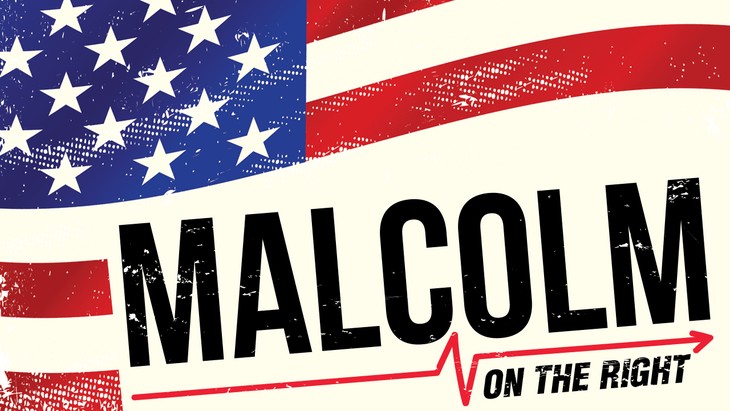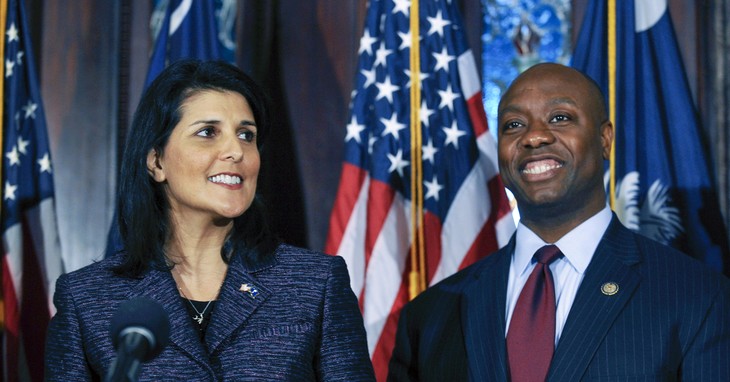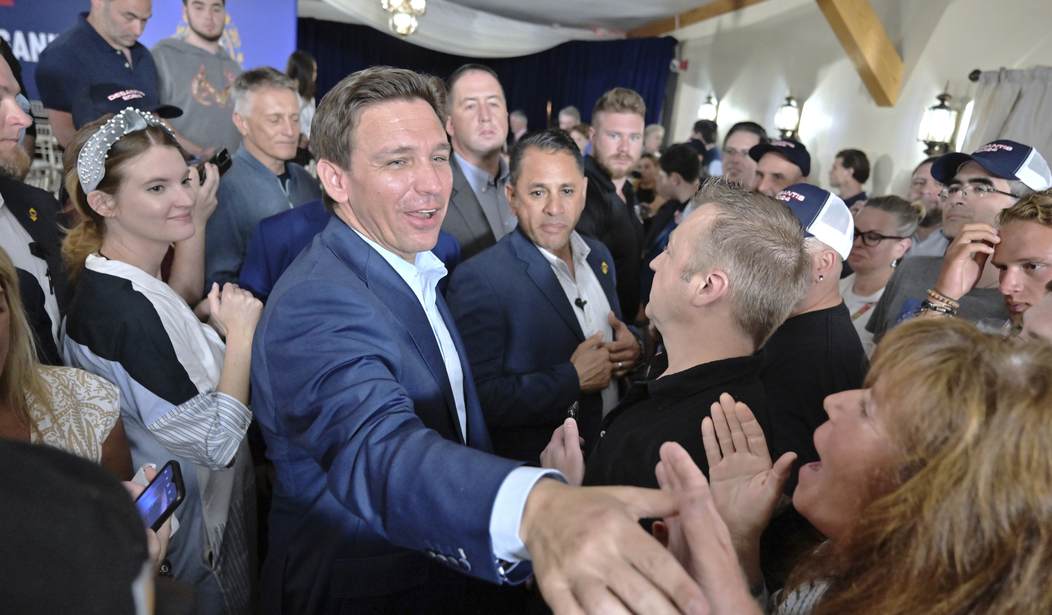Ron DeSantis, Nikki Haley, Tim Scott, and all the others in this longest-ever GOP presidential primary race are said to be struggling to gain traction and catch up to the big wealthy kahuna.
Even that candidate, Donald Trump, is struggling in the race. He’d like us to think he’s an incumbent president seeking renomination.
That should be easy, given modern political history. By that measure, an incumbent president shouldn’t really have to campaign in primaries, let alone acknowledge opponents in a debate, Joe Biden’s strategy.
Even committed voters want to see their candidate work for it. Trump needs to campaign seriously, and he will have to debate his party mates at some point. This is not a coronation.
Trump has a very impressive record in office, as I’ve written, if he can find the discipline to tout that and not slide into the petty name-calling he thinks is punching back. DeSantis is skillfully mining the ominous Woke movement.
Unless perhaps Trump’s “campaign” is really about the addictive attention he gets and the money he can raise. And the possible truth is he’s OK with losing again since he now knows he can blame someone else and still draw a crowd.
That sounds ridiculous, doesn’t it?
Because Trump is all about winning except, that is, for the 2018 midterms, a large batch of dubious Cabinet and staff picks, the 2020 general election, and the lousy 2022 midterm candidates he backed in places like Georgia and Pennsylvania just because they liked him. Which cost Trump’s party Senate control.
And unless you think about how early Trump announced to head off challengers, which didn’t work, and the relatively few actual campaign events he’s done, and the major candidate appearance he’s skipped and hints he intends to repeat.
And then there are the accumulating legal indictments Democrats are throwing in his path, like spike strips in a police-car chase.
These legal cases are obvious, often forced evidence of the Swamp’s unlimited, uncontrollable revenge on Trump for crushing Hillary’s political inheritance and challenging the faceless Deep State.
Trump and his most loyal cadres see these charges and tumult as badges of honor. Other people who vote maybe not so much, especially if this time they have cleaner, younger, viable, adult alternatives that don’t have messy courtroom dates strewn throughout next year’s campaign season.
Polls show Americans uneasy about all this. You know media coverage of them will be relentless, breaking, and nonstop with the most minute steps covered as major stories – and minute-by-minute reminders of his legal quicksand. Trump’s leaving Mar-a-Lago right now. He just arrived at the courthouse. The fraud trial is beginning.
Two powerful reasons for that: Eastern elites are sure that will damage his campaign, just as they knew Bill Clinton’s wife would be the first female president.
And in a politically perverse way, Trump’s self-created persona and behavior as a media magnet are wonderful for media business.
Many people crave news about the often obstreperous and generous billionaire, the more outrageous the better.
He was great for CNN and MSNBC and all their annoying, self-important personalities. And Trump enjoyed the attention, any attention, so much that he played to them, often to his own political detriment.
Have you noticed what’s happened to the mainstream media without President Trump? Internal turmoil, firings, resignations, crappy ratings, layoffs.
It’s pretty entertaining to watch. And impressive the punishments that pride, meanness, and self-satisfaction can inflict, eventually. The same karma lies in wait for Trump, though he doesn’t care.

So, let’s be real here. By the incumbent standards Trump prefers, he is actually behind in a presidential primary following a first term.
It’s an imperfect comparison because Trump’s been out of office more than two years. But the RealClear Politics average of 10 candidates in eight polls has Trump ahead of his closest challenger, Ron DeSantis, by 32 points.
The other eight candidates, all in single digits, get 19.5 percent combined.
In a normal party renomination contest, Trump’s poll standings a year out would resemble George W. Bush’s 62 percent in 2003. And there sure wouldn’t be nine party challengers who detect an opening, an indicator of the fundamental split among Republicans over Trump.
As a politician, Trump has not really gained a voter majority. With a field of 17 Republicans in 2016, he lost the Iowa caucus.
He won the New Hampshire GOP primary, where independents could vote. He got 35.6 percent of the vote there. But nearly twice as many (63.2 percent) voted for somebody else.
In South Carolina, Trump won with 32 percent of the vote. But just Ted Cruz and Marco Rubio took a combined 45 percent. In our Rube Goldberg “system” of primaries, a minor plurality like Trump’s can often capture all of a state’s delegates.
Trump won the general election with only 46.1 percent of the popular vote to Clinton’s 48.2. But Trump’s slim margins in key states came in just the right places to take 57 percent of the Electoral College (304).
Clinton got more popular votes, but they were overloaded in Democrat strongholds like California and spread too thin to win in other states where she failed to campaign. So, their abundance was basically wasted.
As usual, media coverage plays a crucial role. Not because it tells Americans what to think, but because it points people to what to think about.
Media flocked to Trump’s volume, name-calling, and antics like July moths to a porch light. Louisiana Gov. Bobby Jindal, among others, rightly complained then that denied voters useful information and crowded out attention to other candidates’ often worthy policy points and critiques.
Good for Trump and media. Not the country.
The same is happening this cycle, with media reveling in Trump’s legal troubles instead of conscientiously examining others’ positions on Ukraine, education, spending, national security, and Joe Biden’s condition.
Predictably, sadly, and I would argue irresponsibly, media is glued to the easy horserace coverage tied dangerously to hypothetical match-up polls of voters who still know little of the field.

You will – already have – see candidates moving up or down or not at all, according to the daily accounts of media that need something new to write every time, whether that’s rooted in substance and reality or not.
It’s an imaginary race of endless furlongs. So desperate were some media for new “news” last spring they reported the DeSantis campaign collapsing weeks before he even announced. Don’t be played by this fanciful writing.
And remember, during the 2015-16 cycle, a Pew Research Center study found hidden voter fluidity with virtually every Republican changing their mind at least once, many multiple times.
I’d recommend avoiding the horserace accounts to do your own research on policies and personalities. Yes, that takes some work and attention, but look what we got when 2020 media and voters ignored the bounteous warning signs of Biden’s mental decay to blindly cast ballots against the orange man.
C-SPAN provides valuable regular coverage of individual candidate events with cameras at their elbows to catch revealing moments.
To address his static poll standings, DeSantis is adjusting strategy from local media with their targeted audiences to national media with broader reach. Also shifting from set event speeches to more intimate affairs with voters that rely heavily on ensuing word-of-mouth and a candidate’s ability to connect close-up. The little-known Jimmy Carter won Iowa that way in 1976, launching his surprise White House win.
DeSantis’ recent TV town hall was well-received and good practice, but it had CNN’s impoverished audience. The Florida chief executive needs to connect with primary-state citizens as well as he has done in Florida, where he won reelection by nearly 20 points.
That takes time and direct evidence for voters to create an authentic DeSantis reputation from scratch, beginning first in key primary states. For better or worse, Trump already has his reputation.
Chris Christie did 120 New Hampshire town halls in 2015-16. Just imagine the patience and endurance to do that many evening meetings answering the same questions. My mind would turn to Jell-O. Christie finished fifth anyway and dropped out.
Media treats these early months as crucial, well, crucial to their ratings and efforts to create viewer habits. For campaigns and candidates, they’re more like test drives as they try out policies, speeches, venues, applause lines, and combinations of team players.
The main event actually begins Aug. 23 with FoxNews’ first national GOP debate for those candidates who meet the RNC’s qualifications.
Predictably, Trump has gained considerable media attention simply by suggesting he might not attend. He makes many threats, some of which actually come true.
He’s skipped events before, but that was when he was new, refreshing, and did not have a four-year White House record to defend.
This time is riskier. Trump’s got a compact squad of experienced opponents. They could gain ground simply by becoming better known to a national audience as realistic alternatives who are professional, pointed, poised, and substantive on their own, talking about the future, not rote relitigating 2020.
When I was in state and federal politics, a major surprise was the genuine pleasure that pols at that level get from walking the high wire before critical crowds, seeing how well they can do under intense pressure.
We actually want a president who can handle that kind of pressure without becoming confused or lost onstage.
What would cause normal people to overdose on Pepto-Bismol is an adrenaline rush for these pros. We will see exactly one month from tonight which is which in the 2024 Republican field.














